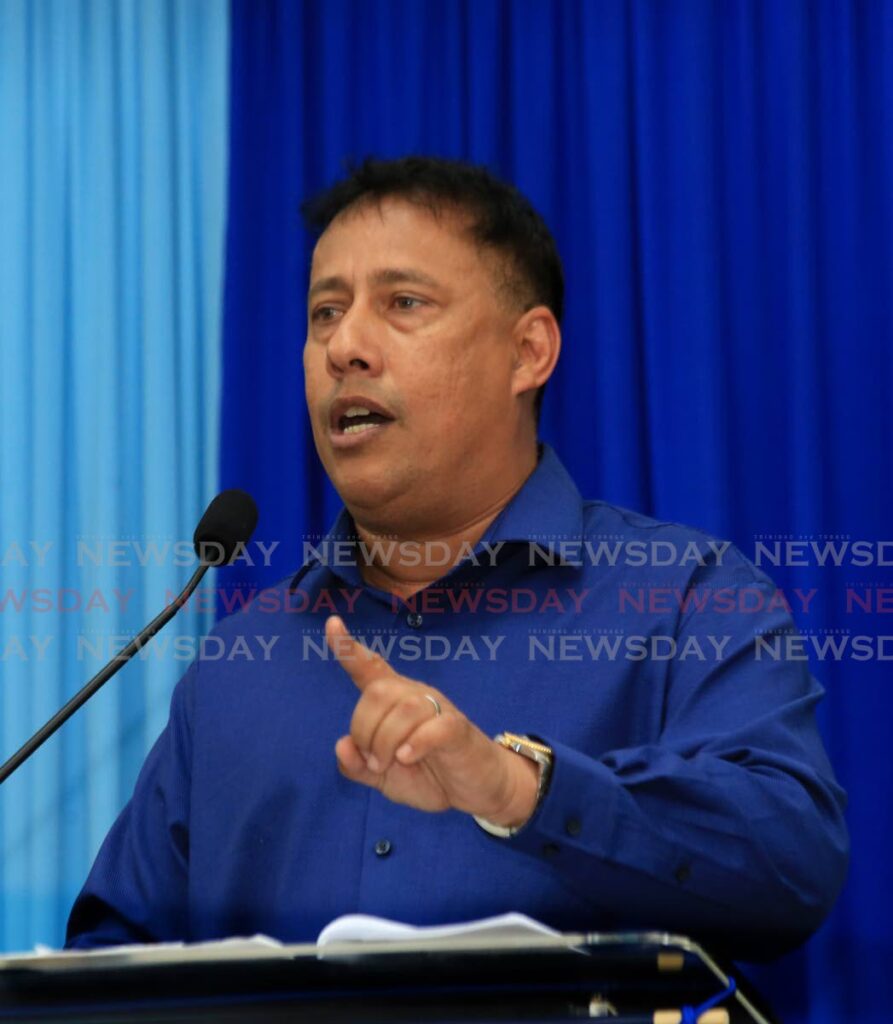Clint Chan Tack

THE National Transformation Alliance (NTA), UNC and Progressive Democratic Patriots (PDP) said people need to understand how local government reform will benefit them before they cast their ballots in the next local government elections.
All three political parties, together with the ruling PNM, are currently preparing for these elections.
On Saturday, NTA political leader Gary Griffith said the party is currently inviting applications for potential candidates to be screened for the elections.
On local government reform, Griffith said, “Reform speaks to change, and, as with all else, change comes with an equal share of enthusiasm and resistance.”
The NTA, he continued, is focused on transforming the resistance aspect, “to fostering a deeper appreciation of impact of what a strengthening of the local government systems can have at the community level.”
Griffith recalled that he has spoken publicly many times about the devolution of power.
“It is therefore our role to ensure our constituents appreciate how this impacts on their most fundamental requirements.”
In a statement on Saturday, UNC general secretary Peter Kanhai announced that the party has reopened nominations for local government candidates from May 15 to 22.
Nomination forms can be collected and filed at the UNC’s headquarters in Chaguanas.
The deadline for filing nominations is May 22 at 4 pm.
Chairman of the UNC-controlled Penal/Debe Regional Corporation, Dr Allen Sammy, is uncertain whether local government practitioners and the public in general understand what the local government reform being proposed by Government involves.
“They (public) don’t have a clue and even for practitioners, we’re learning/discovering as we go along.”
Sammy said while Rural Development and Local Government Minister Faris Al-Rawi has shared his long term vision for local government reform with local government corporations, it had a “heavy digitalisation focus.”
PDP political leader Watson Duke said the PDP has started screening nominees who could be potential candidates in the elections.
On local government reform, he said, “People desire a more functional local government, but are unaware of the real changes.” Duke claimed that ” more money and more powers seem to create some buy in though ignorantly.”
In a statement on May 1, the PNM said the Prime Minister issued a call at a PNM general council meeting on the same day, for nominations from party members interested in offering themselves to be considered as candidates “for the imminent local government elections.”
Dr Rowley, who is also PNM political leader, said, “The PNM is determined to improve the local government system and we look forward to the new system of local government with the reform in the new term.”
The period for nominations is May 2 to June 3. Nomination forms are available from all PNM constituency executives and from the PNM’s Central Regional Office.
Screening of nominees for all 141 local government electoral districts in Trinidad will begin on dates and times to be announced after June 3.
At a news conference on November 3, 2022, Al-Rawi said under the Miscellaneous Provisions (Local Government Reform) Bill 2020 – which was partially proclaimed on November 8, 2022 – the terms of all councillors and aldermen will end on December 3, 2023.
He said this extra year provides time for the roll-out of the local government reform package and there is a three-month period after this date within which local government elections can be held. Prior to this change, the councils’ term would have ended on December 3, this year, and elections would have been due within three months.
Al-Rawi said, “Within the extra year, we will be able to build out all the relevant sections of the law, including taking councillors who are executive members and making them into secretaries similar to the THA; operationalising 13 separate divisions inside local government divisions, including planning, engineering, audit and accounting, sporting and recreation, etc.”
Prior to this extension, the life of local government bodies would have ended on December 3, 2022.
The PNM and UNC each currently control seven of the 14 local government corporations in Trinidad.
